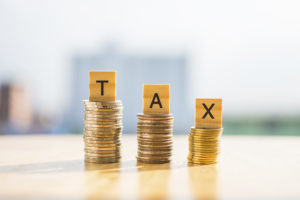BENSON, PEREZ MATOS, ANTAKLY & WATTS
FOUNDED IN 1953
ATTORNEYS – CONSULTANTS
www.bpmaw.net
Caracas, January 12, 2016
REPORT
FOREIGN EXCHANGE SYSTEM
AMENDMENT TO THE FOREIGN-EXCHANGE SYSTEM AND CRIMES ACT
STATUTE
Executive Decree No. 2,167 enacting the Foreign-Exchange System and Crimes Act (the “Law”), dated December 29, 2015, was published in Official Gazette of the Bolivarian Republic of Venezuela Special Issue No. 6,210 dated December 30, 2015. This new decree partially amends Executive Decree No. 6,150 that enacted the law bearing the same name dated November 13, 2014, covered in a report that we issued at that time.
The new Law became effective as of December 30, 2015.
CHANGES TO THE LAW
In general, the new Law increases almost all of the financial penalties and prison sentences and also adds further foreign-exchange crimes and administrative violations.
The most noteworthy changes are listed below:
- FOREIGN-EXCHANGE CRIMES
- The following foreign Exchange crimes were added:
1.1.1 Use of a non-official exchange rate when setting prices.
Those who promote, market or set prices for goods and services based on any exchange rate other than those allowed under the foreign exchange regulations or the exchange rate set for the respective foreign exchange transaction by the foreign exchange administration, shall be punished with sentences ranging from seven (7) to twelve (12) years’ imprisonment, plus a fine equal to two hundred percent (200%) of the remainder after subtracting the value set for the transaction pursuant to the applicable foreign exchange regulations from the foreign currency value set by the offender.
1.1.2 Spreading false information regarding the exchange rate
Those who participate, either directly or indirectly, in preparing any ruse or stratagem aimed at the dissemination, whether electronically, via television, radio or means of communication of any kind, of any writings, signals, images or sounds, false or fraudulent information regarding the foreign exchange rate applicable in the Bolivarian Republic of Venezuela, shall be punished with sentences of ten (10) to fifteen (15) years in prison.
1.1.3 Repeat violation
Anyone who, having been convicted, were to once again commit one of the crimes provided for in the Law shall be subject to the penalty applicable to the crime in question, increased by one fourth as provided for in the provisions of the Criminal Code. Furthermore, the repeat offender shall not have access to the mechanisms managed by the authorities in charge of the foreign exchange management system for a period equal to that of the respective penalty.
1.2 Longer prison terms and larger financial penalties for the following crimes:
1.2.1 Filing of false or forged documents or information to obtain official foreign currency
Prison: Three (3) to five (5) years.
Fine: Ten Tax Units (10 T.U.), calculated at the rate in force on the date of sentencing, per US$ or the equivalent in another foreign currency.
1.2.2 Purchase of official-rate foreign currency under false pretenses
Prison: Four (4) to eight (8) years.
Fine: Twelve Tax Units (12 T.U.), calculated at the rate in force on the date of sentencing, per US$1.00 or the equivalent in another foreign currency.
1.2.3 Use of the official foreign currency for another purpose
Prison: Three (3) to seven (7) years.
Fine: Ten tax units (10 T.U.), calculated at the rate in force on the date of sentencing, per US$1.00 or the equivalent in another foreign currency.
1.2.4 Fostering foreign exchange crimes either directly or indirectly
Prison: Four (4) to eight (8) years.
Fine: Ten tax units (10 T.U.), calculated at the rate in force on the date of sentencing, per US$1.00 or the equivalent in another foreign currency.
- Failure to reimburse foreign currency to the Central Bank of Venezuela (BCV)
- a) When the amount to be reimbursed is over US$ 10,000.00, the penalty is from two (2) to six (6) years’ imprisonment and a fine of ten tax units (10 T.U.), calculated at the rate in force on the date of sentencing, per US$1.00 or the equivalent in another foreign currency, in addition to reimbursement of the foreign exchange; and
- b) When the amount is US$ 10,000.00 or less, the penalty shall be a fine of ten tax units (10 T.U.), calculated at the rate in force on the date of sentencing, per US$1.00 or the equivalent in another foreign currency, in addition to reimbursement of the foreign exchange.
Notes:
- Under the previous law, the limit for differentiating between a crime and an administrative offense in the case of failure to reimburse foreign currency was set at US$50,000.00.
- Reimbursement must be made within a term of 30 business days following the respective date or the date on which the administrative decision becomes final, as the case may be.
- When reimbursement of the foreign exchange is not possible, the authority deciding the case may allow for reimbursement in bolivars and order payment of fifteen Tax Units (15 T.U.), calculated at the rate in force on the date of sentencing, per US$1.00 or the equivalent in another foreign currency.
- ADMINISTRATIVE VIOLATIONS.
The following penalties are applicable in the case of administrative violations:
2.1 Failure to announce the origin of the foreign exchange
Those who fail to comply with the obligation to post a notice in their establishment, visible to the public, stating which goods and services being offered were purchased with foreign currency authorized by CENCOEX, shall be subject to fines ranging from two hundred Tax Units (200 T.U.) to five hundred Tax Units (500 T.U.). In the case of repeat offenders, the fine shall be twice as much.
Note:
This is the only case in which the law has reduced the amount of the fine. Under the old law, the top fine was five thousand Tax Units (5.000 T.U.).
2.2. Obtaining foreign currency in violation of the rules
The fine for this violation shall be ten Tax Units (10 T.U.), calculated at the rate in force at the time of payment, per US$1.00 or the equivalent in another foreign currency of the amount involved in the respective foreign-exchange transaction, in addition to reimbursement of the foreign exchange to the BCV.
2.3 Repeat administrative violation
In this case the fine shall be twice that applicable for the respective violation and suspension from the Register of Users of the Foreign-Exchange Administration System for a term of two (2) years following the date of payment of the fine for the administrative violation, applicable to any person who, after having already been the subject of a final resolution ordering a penalty, were to commit any of the violations listed in the law
- MISCELLANEOUS
The following new provisions have been added:
3.1 Duty to report foreign-exchange transactions
Both individuals and corporations are under the obligation to inform the National Foreign Trade Center (CENCOEX) of any foreign-exchange transactions carried out in the country, in compliance with the means, terms and time frames set by that institution.
3.2 “Informant”
The law provides for the possibility of reducing the respective penalty by half in the case of the informant who provides effective collaboration in an investigation and meets other requirements, and the expectations are met, in the case of events involving organized crime or violent criminals.
The government will take steps to guarantee the physical safety of the informant.
3.3 Seizure of assets
The law provides that assets that are the product of crimes described in this Law may be seized when the crimes involve foreign exchange that was authorized or disbursed using the mechanisms managed by the authorities in charge of the system for administration of foreign exchange that is public property. The order must be given by the judge in the respective ruling, stating specifically the assets covered by the order.
3.4 Approval of foreign exchange for Venezuelans residing in the country
The Law also provides that the approval of foreign exchange for purchases made electronically or using a credit cart is a benefit that will only be available for Venezuelans who reside permanently in the Bolivarian Republic of Venezuela.
3.5 Production Certificates System
The Law provides that the vice president for economic affairs, in coordination with the Office of the Vice-President of the Republic, must create and manage a Production Certificates System within a term of no more than six (6) months.
This certificate will be needed in order to apply for foreign currency to be used to import certain goods and services.
- STATUTE OF LIMITATIONS
The law states that there shall be no statute of limitations for the administrative violations and for action in the case of the crimes covered by the Law.
Note:
In the law that was superseded, the statute of limitations was the same as that set in the Penal Code in the case of prison sentences, and ten (10) years in the case of administrative violations and the respective penalties.
- COMMENT
It must be pointed out that the Executive Decree enacting the Foreign-Exchange System and Crimes Act is not what is known as an “organic law” and, therefore, it may be amended by a simple majority in the National Assembly.
The foregoing summarizes the basic changes to the foreign exchange instruments. Please feel free to contact us if you wish to clarify any doubts or elaborate on any aspect of the new law.
Yours truly,
BENSON, PÉREZ MATOS, ANTAKLY & WATTS
Farid Antakly K
All rights reserved. This work is a contribution of BENSON, PEREZ MATOS, ANTAKLY & WATTS to its clients on legal topics of their interest for purposes of providing orientation. It must not be interpreted as a specific legal opinion.



